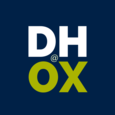Lexicon of Greek Personal Names
Principal Investigator / Director: Robert Parker, Sebastian Rahtz
Oxford participants: Richard Catling; Edouard Chiricat; Thomas Corsten; Robert Parker; Sebastian Rahtz (Main Contact)
Other Participants: not specified
Project Webpage: http://www.lgpn.ox.ac.uk/
Start Date: not specified
End Date: 31/03/2016
Funder: AHRC; The Archaeological Societyof Athens ; the Academy of Athens; the British Academy, Kostopoulos Foundation
Partner organizations (inside or outside Oxford): not specified
Project Description:
The Lexicon of Greek Personal Names is a project to collect and publish all ancient Greek personal names from the 8th Century BC to the late Roman Empire. Ancient Greek names provide crucial evidence to the historian. They reveal where people came from; they show what gods were popular at a given time; they may express political ideals. The Lexicon of Greek Personal Names project traces every bearer of every name, drawing on a huge variety of evidence, from personal tombstones, dedications, works of art, to civic decrees, treaties, citizen-lists etc., artefacts, graffiti etc. In other words, from all Greek literary sources, documentary sources (inscriptions and papyri), coins, and artefacts. These are mostly drawn from published sources, but when appropriate the original is examined. The source material is held mainly in museums and libraries throughout Europe and the USA.
The result: almost 400,000 ancient Greeks on record, of whom more than 250,000 have been published in six traditional print volumes (O.U.P., 1987-2010). Online, there is currently a facility to search and analyse more than 35,000 personal names, along with downloadable indexes and bibliographies.
Electronically, since 1975 the data have migrated through a variety of formats, and of operating, database and typesetting systems. The basic research data being prepared for publication reside in ASCII text files which can easily be altered during the editing process. Once completed, they are loaded to an Ingres relational database, running on a linux box in the Classics Faculty, from which they are programmed for publication (TeX), and for other outputs (HTML, XML).
Historically the main purpose of the digital resources was to prepare research material for publication. However, in 2006 the late Elaine Matthews (LGPN) and Sebastian Rahtz (OUCS) embarked on a project to convert LGPN data to XML, as a long-term preservation and dissemination strategy for the project. As a step towards achieving interoperability, LGPN records are aligned with the vocabulary and semantics for XML elements of the Text Encoding Initiative, thus participating in the establishment of standards within the online documentary community (Epidoc: http://epidoc.sourceforge.net/) which provides a high percentage of LGPN’s evidence. More recently, as part of the CLAROS project (http://www.clarosnet.org/index.htm), a subset of LGPN data has been aligned with the CDOC-CRM ontology (http://cidoc.ics.forth.gr/), an ISO standard established for the museum community.
LGPN is currently using an eXist XML database serving TEI-XML data, with an Xquery front end, on a server in the Classics Faculty. The service went public in 2011. Further details of LGPN’s XML project are available at: http://www.lgpn.ox.ac.uk/online/documents/TEIXML



